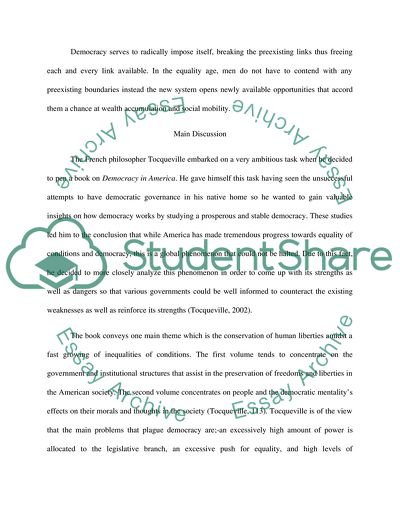Cite this document
(“Tocqueville's Philosophy Essay Example | Topics and Well Written Essays - 1750 words”, n.d.)
Tocqueville's Philosophy Essay Example | Topics and Well Written Essays - 1750 words. Retrieved from https://studentshare.org/philosophy/1644526-tocquevilles-phillosophy
Tocqueville's Philosophy Essay Example | Topics and Well Written Essays - 1750 words. Retrieved from https://studentshare.org/philosophy/1644526-tocquevilles-phillosophy
(Tocqueville'S Philosophy Essay Example | Topics and Well Written Essays - 1750 Words)
Tocqueville'S Philosophy Essay Example | Topics and Well Written Essays - 1750 Words. https://studentshare.org/philosophy/1644526-tocquevilles-phillosophy.
Tocqueville'S Philosophy Essay Example | Topics and Well Written Essays - 1750 Words. https://studentshare.org/philosophy/1644526-tocquevilles-phillosophy.
“Tocqueville'S Philosophy Essay Example | Topics and Well Written Essays - 1750 Words”, n.d. https://studentshare.org/philosophy/1644526-tocquevilles-phillosophy.


